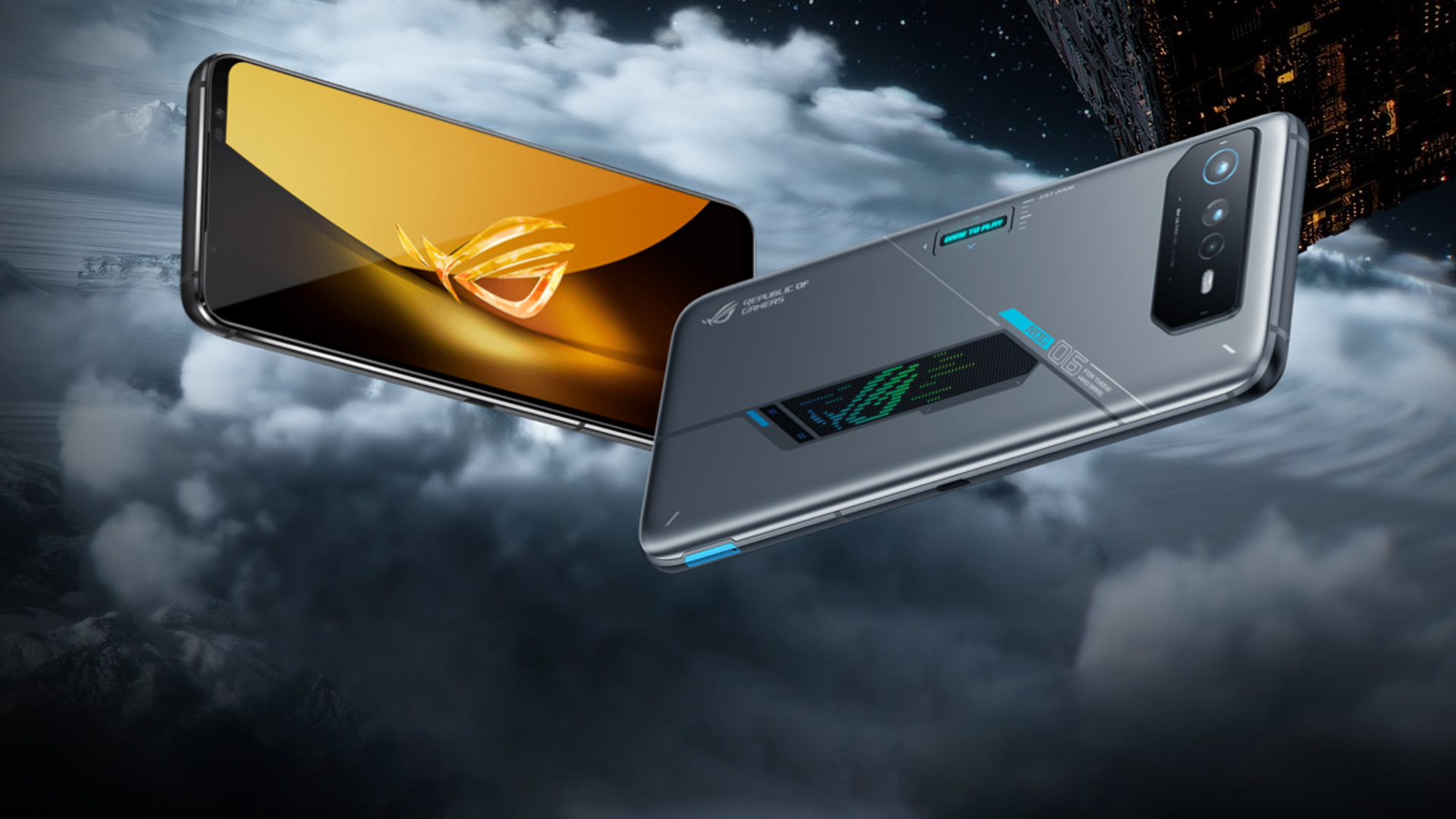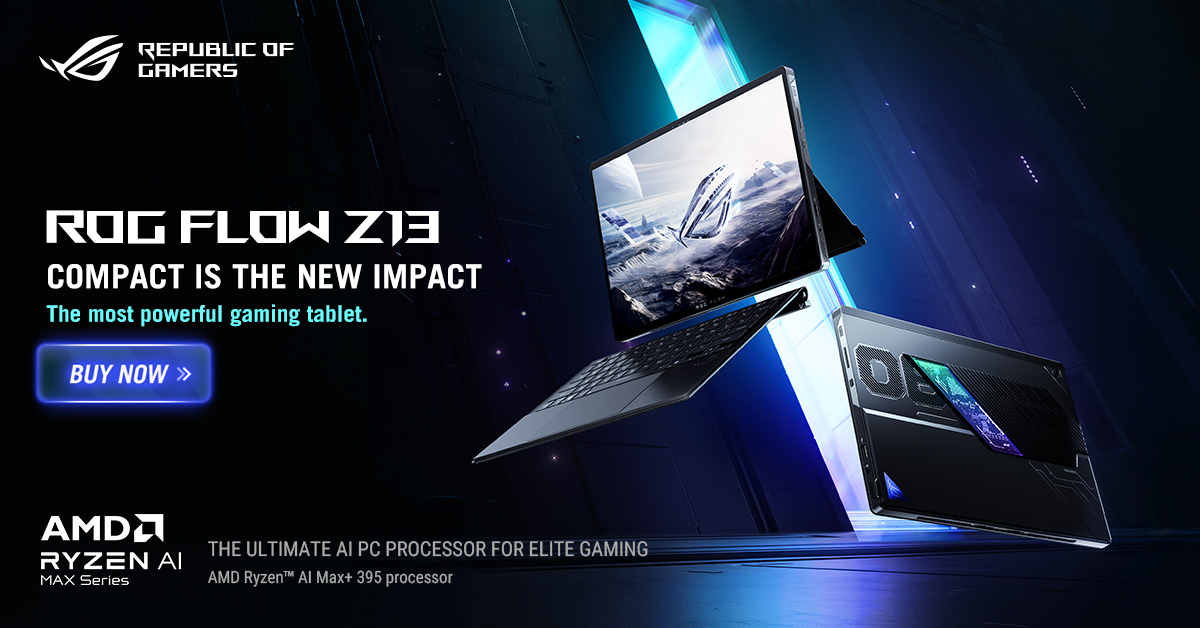Out with the old and in with the new, that’s what ASUS ROG has gone with for the release of the ASUS ROG Phone 6D and 6D Ultimate. Contrastingly to the previously launched Snapdragon 8+ Gen 1 powered ROG Phone 6 and 6 Pro, the newly launched duo are powered by Mediatek’s latest and worthy challenger to it in the form of the Dimensity 9000 Plus. Courtesy of ASUS Malaysia, we managed to snag us a ASUS ROG Phone 6D and an Aeroactive Cooler.
What’s In The Box
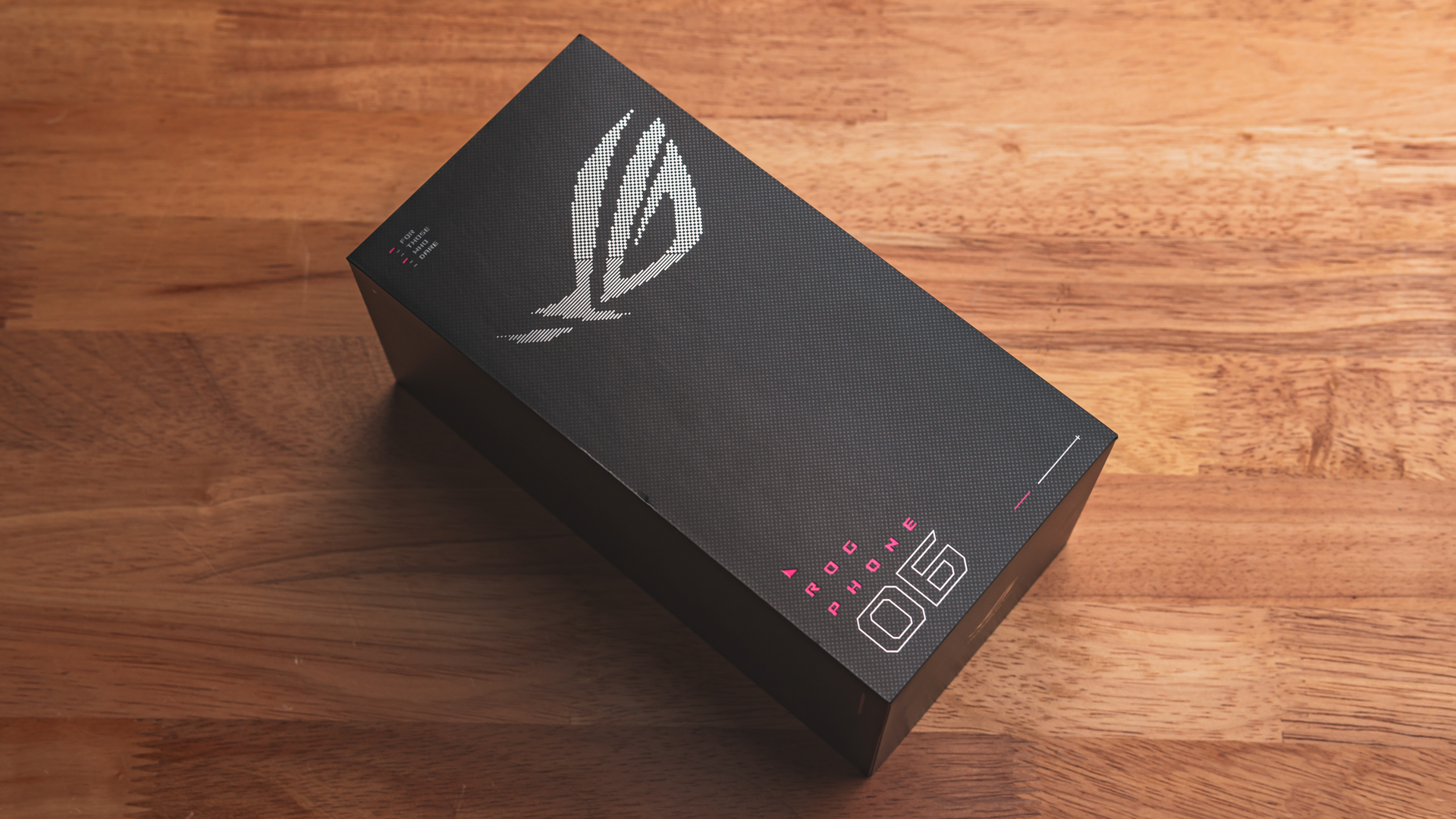
The ROG Phone 6D comes in a nice black box with the ROG eyes staring at your soul. The entirety of the box is made out of cardboard and packs a very premium feel to it. I must say it was a job well done considering how other phone makers are cutting costs by compromising the standards of their packaging. Our version of the ROG Phone 6D is the 12GB LPDDR5X and 256GB storage version. There is a 16GB LPDDR5X version available as well.
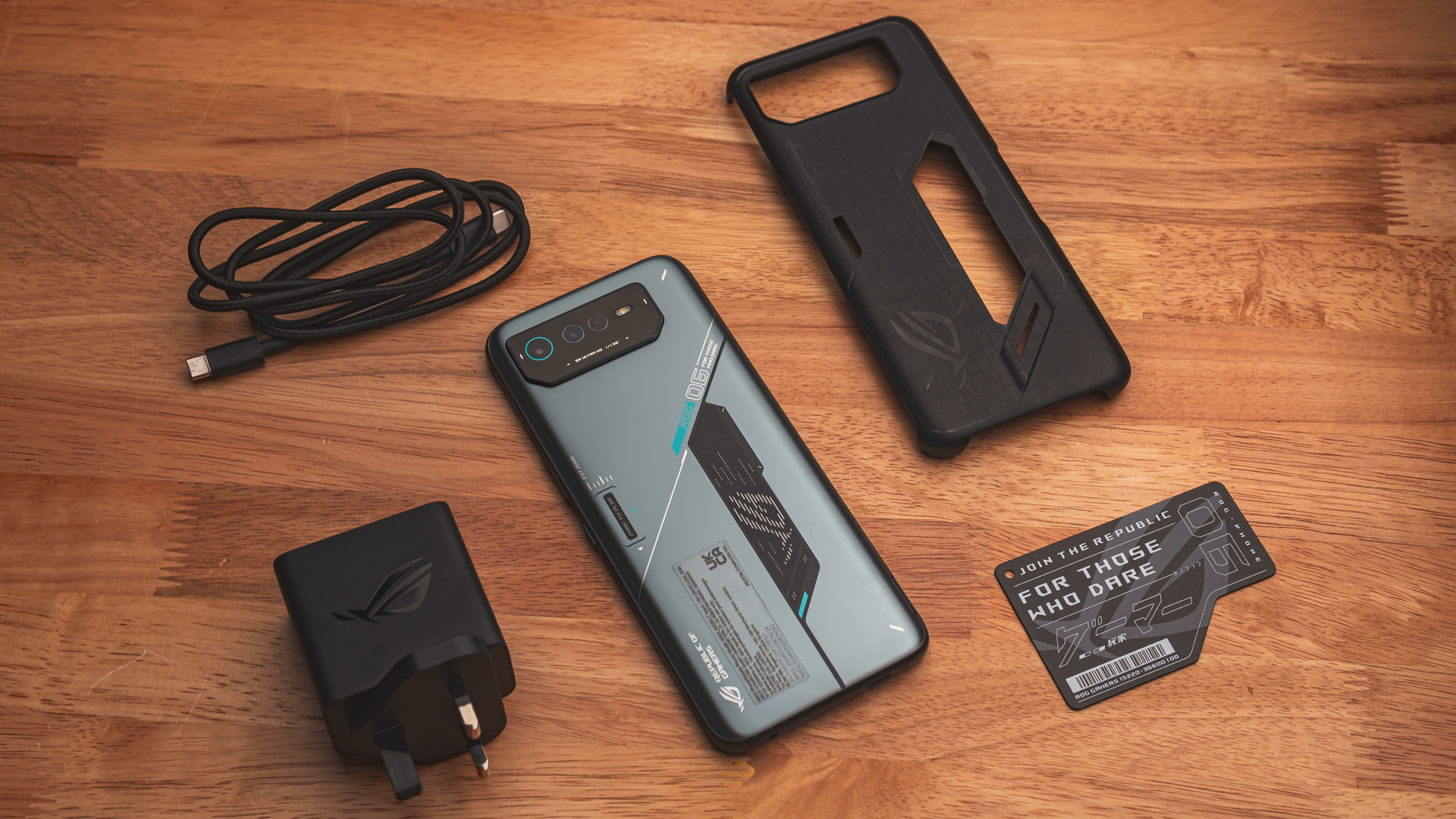
The ROG Phone 6D, this time around is only available in a space gray colourway with blue accents. This is stark difference to the ROG Phone 6 which was available in black and white with red accents. In light of that, I admit that this new color scheme is something that floats my boat.
What you see is what you get. A 65W charger, USB C to USB C cable, a phone cover and a ROG AR Card that will guide you through an augmented reality tour when you first setup the phone.
Tech Specs
Colours | Space Gray Only |
CPU | 3.2 GHz MediaTek Dimensity 9000+ Mobile Platform |
GPU | Mali-G710 GPU |
OS/UI | Android™ 12 with ROG UI & Zen UI, 2 OS updates and at least 2 yrs of security updates |
Display | 6.78” 20.4:9 2448×1080 (395ppi) 165 Hz, 1 ms AMOLED HDR10+ certified, 720 Hz touch sampling rate, 23 ms touch latency |
Brightness | 5 nits to 800nits @ APL100 + HBM or 1200nits @ APL1, 111.23% DCI-P3, sRGB 150.89%, Delta E average < 1, Contrast ratio: 1,000,000:1 |
Display | Front 2.5D Corning® Gorilla® Glass Victus™ SGS Eye Care 6.5% & SGS Seamless Pro (120 Hz) AS coating for reducing friction when hand sweating |
Display Chip | Pixelworks i6 Processor |
IP Rating | IPX 4 |
Memory | 12GB LPDDR5X |
Storage | 256GB, No SD Card Slot |
Sensors | Accelerator, E-Compass, Proximity, Ambient light sensor, in-display fingerprint sensor, Gyro, Ultrasonic sensors for AirTrigger 6 and grip press detection |
Back Camera | 50MP SONY f/1.9 IMX766 main sensor, 13MP ultra-wide f/2.2, 5MP macro f/2.0 |
Front Camera | 12MP SONY IMX663 sensor |
Video Recording | 8K (7680 by 4320) @ 24 fps (main rear camera) , 4K (3840 by 2160) @ 30/60 fps (main rear camera), @ 30 fps (second rear camera), 1080p @ 30/60 fps; 720p @ 30 fps, 3-axis electronic image stabilization for rear cameras, Time Lapse (4K), Slow Motion video (4K @ 120 fps; 1080p @ 240/120 fps; 720p @ 480 fps), Take still photo while recording video |
Speaker | 5-magnet 12×16 Super Linear Speakers |
Audio Output | 2x Cirrus Logic CS35L45 with 15V boost |
Wi-Fi | IEEE 802.11 a/b/g/n/ac/ax(6E), 2×2 MIMO, 3 Antenna, Wi-Fi-Direct support |
Bluetooth | Bluetooth 5.2, Bluetooth Profile: HFP + A2DP + AVRCP + HID + PAN + OPP |
Additional Bluetooth audio codec | LDAC + aptX + aptX HD + aptX Adaptive + AAC |
GPS | GNSS GPS(L1/L5), GLONASS(L1), Galileo(E1/E5a), BeiDou(B1/B2a), QZSS(L1/L5), NavIC(L5) |
Sim | Dual Nano Sim |
Side-mounted USB-C connector | USB3.1 gen2/DP 1.4(4K)/Fast Charging QC3.0+QC5.0/PD3.0)/Direct Charge |
Bottom USB-C connector | USB2.0/Fast Charging (QC3.0/PD3.0)/Direct Charge 3.5mm Audio Jack |
Battery | Dual 3,000mAh batteries MMT design, total 6 000 mAh (typ.) |
Charger | 65W (21V 3A) PD3.0 / QC5.0 / Direct Charge adapter |
NFC | Support (Card mode support in power off), no charging |
Dimension & Weight | 173 x 77 x 10.3 mm, 239 g |
Outlook
The ROG Phone 6D, shares a lot in common with its sibling the ROG Phone 6. Physical design elements and a vast majority of internal components are fairly the same between both the devices. Besides the available choice of colors, among the key differences with the ROG Phone 6D are that this device runs on a 3.2 GHz MediaTek Dimensity 9000+ SoC and a Mali-G710 GPU.
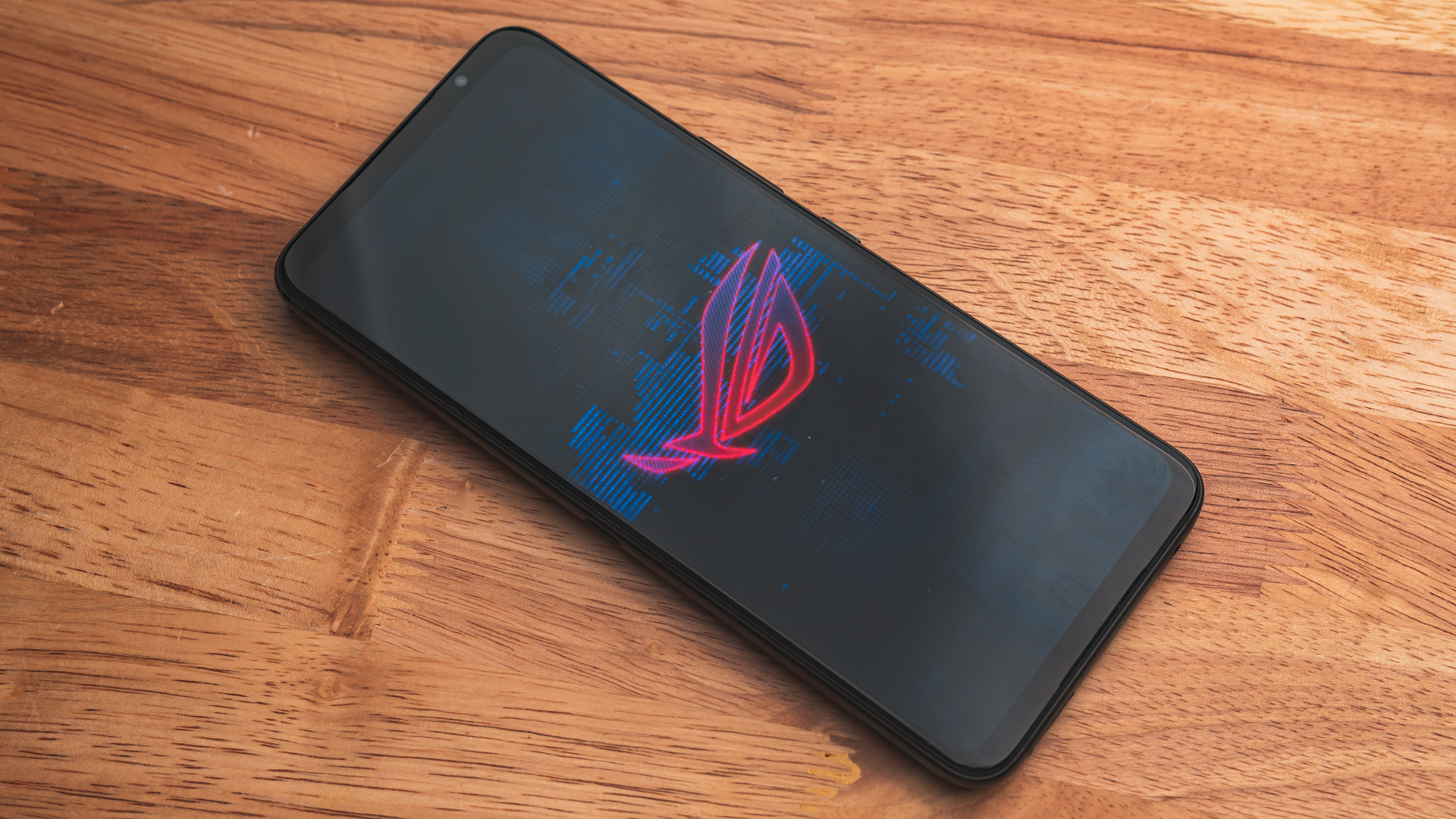
The huge 6.78″ AMOLED display at the front takes up at least 88% of front real estate space. Another interesting point to note here is how the front bezel hides the two speaker grills and front facing camera sleekly. I appreciate the design team for not including a notch as to how some phone makers have been standardizing the notched bezel. Similarly to the ROG Phone 6, the left side houses the secondary USB Type C port, while the right side houses the volume rocker and power button and the bottom tucks the primary USB Type C port and the ever classic rarity 3.5mm audio jack. It’s a bit disappointing that there were no included headphones unlike how it used to be in a not so distant past.
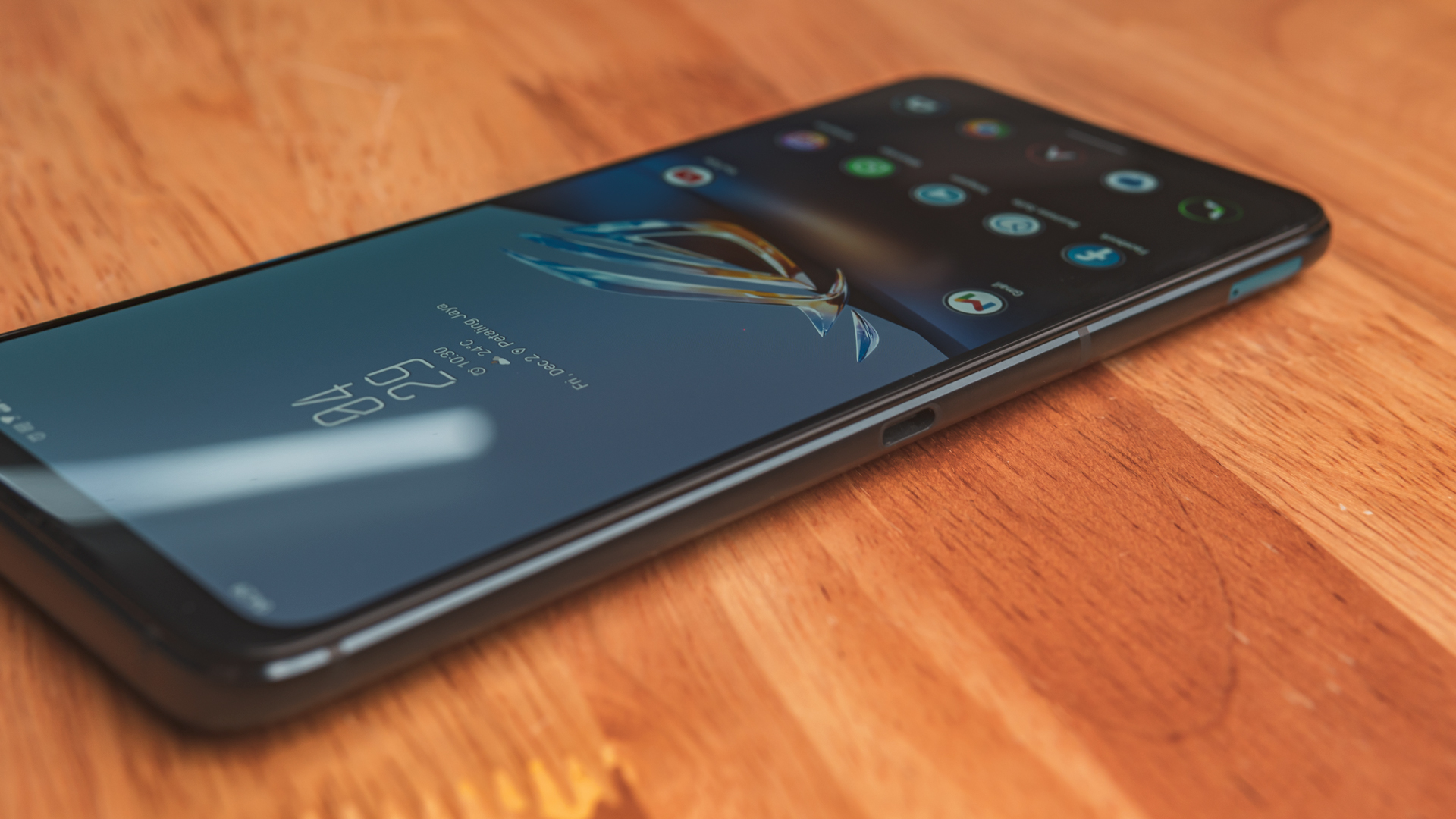
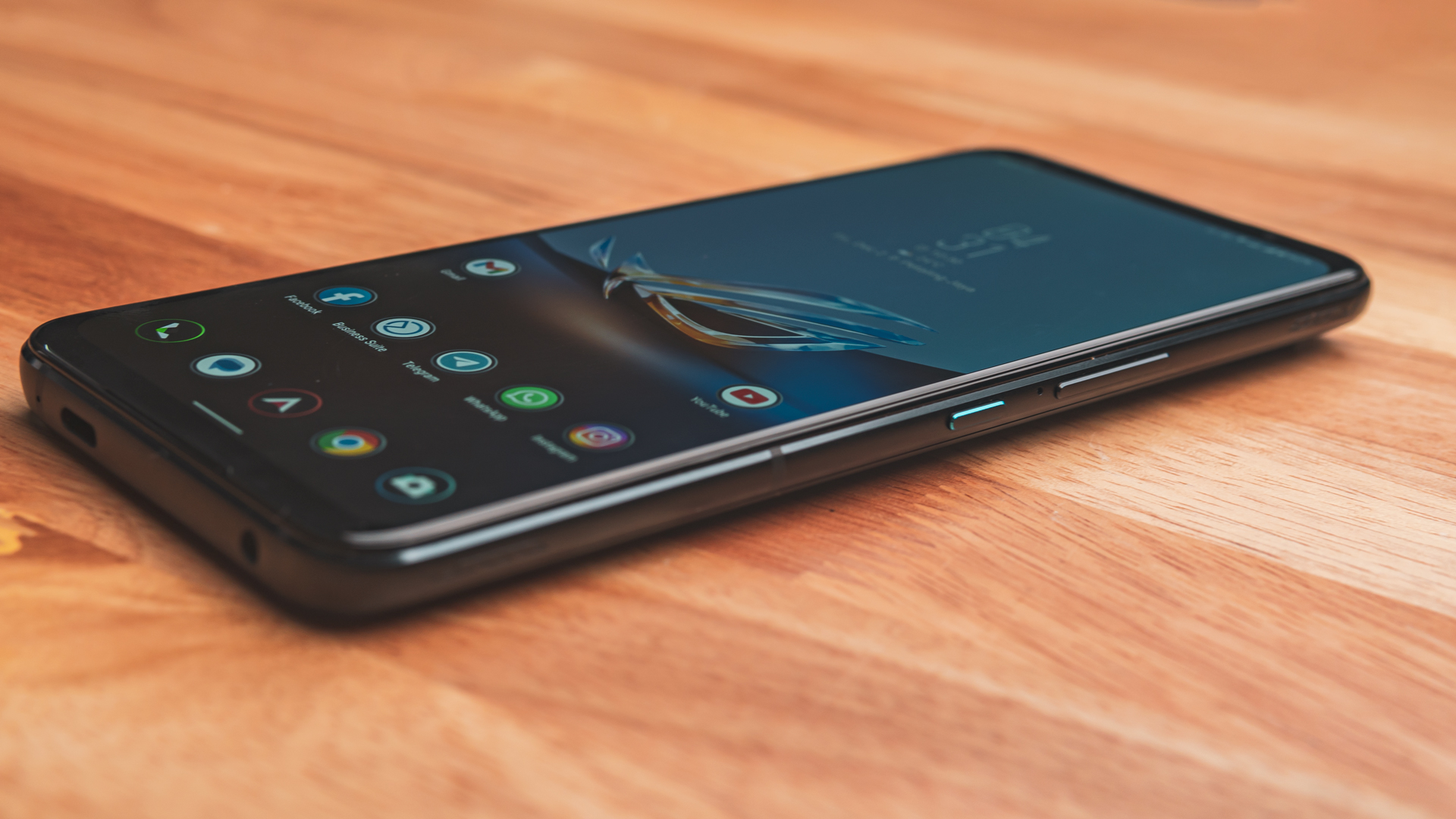
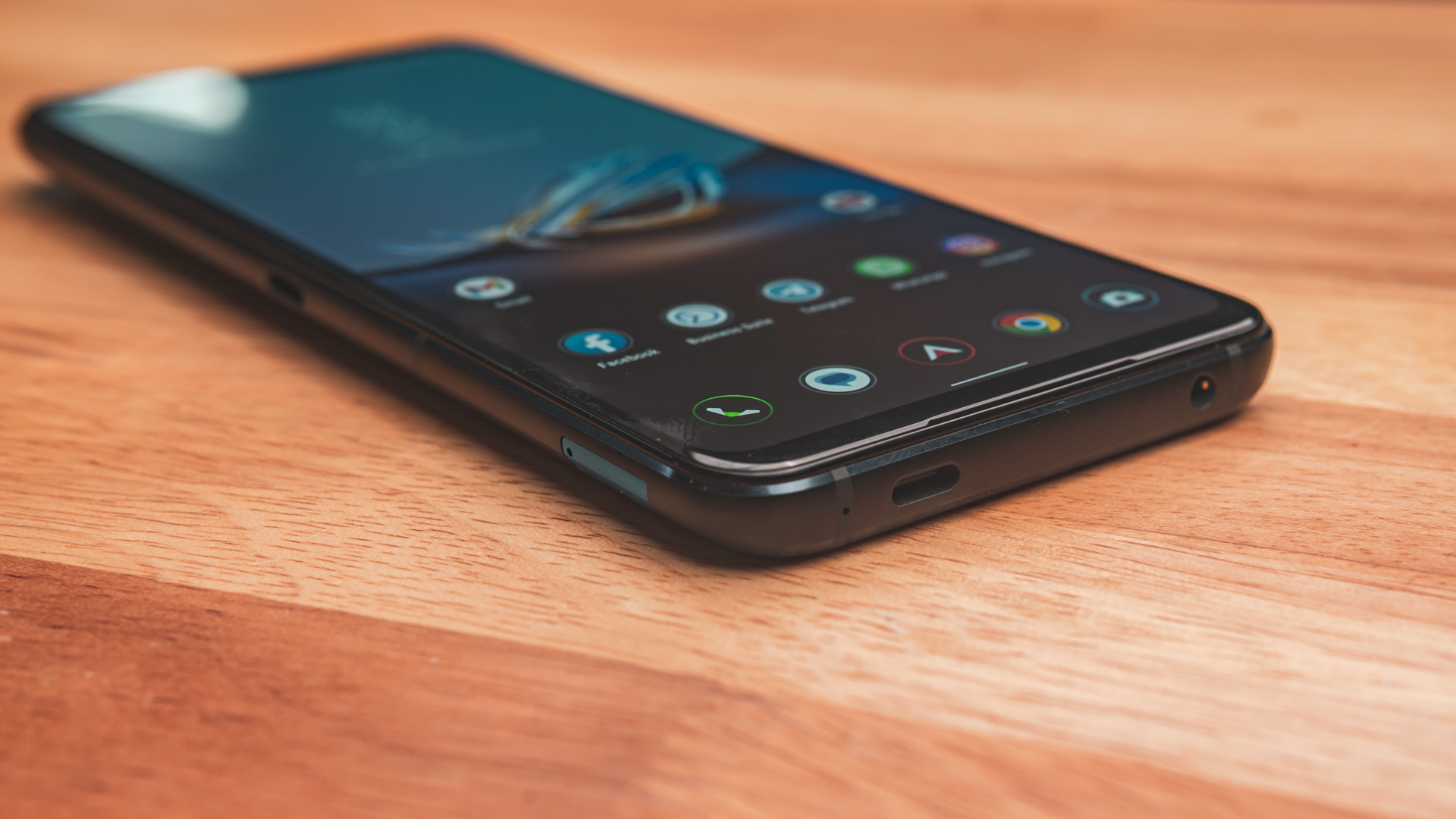
User Interface
The ROG Phone 6D runs on the Android™ 12 operating system with ROG UI & Zen UI. The UI’s provided are almost close to stock with just a little tinkering here and there. Amazingly enough there isn’t much bloatware installed. Coming from the iOS, my integration to using this device was seamless. Within a time frame of roughly 30 minutes, I got used to the working mechanism of the OS. I guess, the argument of iOS vs Android is no longer valid and applicable.
Camera
Sticking to its nature of being a gaming phone, much attention was not paid to the performance of the camera. Having been slotted with the Sony IMX 766 and supported by an OV13B sensor, the raw performance of being a great snap and shoot device is quite disappointing. I can see ASUS’s justification as for most gamers, the quality of a phone’s camera doesn’t matter as long as it’s capable of taking decent selfies and the photos are good enough for social media posting.
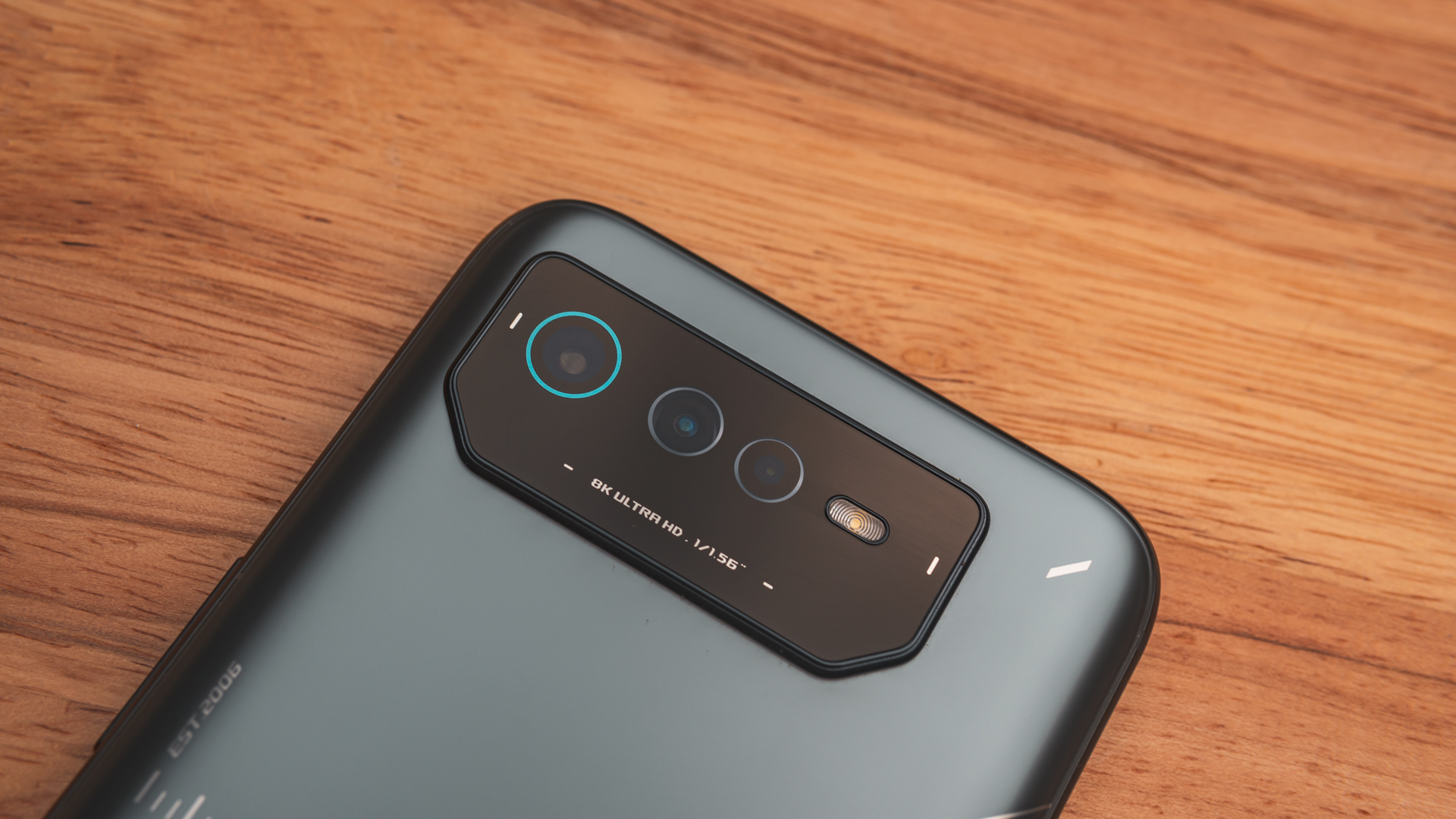
However, if you are an advanced camera user, you will certainly appreciate the fact that the ROG Phone 6D has a “pro” mode. Going into this mode of function will grant you full control of the sensors and settings. The ability to set and control the ISO, aperture, white balance and shutter speed tremendously boosts the performance of the camera and in facts vastly improves the final product of images. Huge kudos to ASUS for this.
Audio
Since the device comes with stereo speakers that are further amplified by the Cirrus Logic CS35L45 amplifiers, I must say that the audio levels and quality are terrific! At full volume, they’re impressively loud and clear, while deep bass is produced along with high notes without any cracking or dispersion. Generally most phones have a bottom facing speaker configuration, however the placement of the speakers on the device also prevents it from being covered up by your palms during gaming.
Benchmark & Gaming
Turn on X Mode on Armoury crate and the device instantly becomes a beast of a gaming machine. A neat feature this time is the new X Mode Plus which is activated automatically once the device is paired with an ASUS ROG Aeroactive cooler. X Mode Plus is basically more juice and power to effortlessly boost your gaming performance.
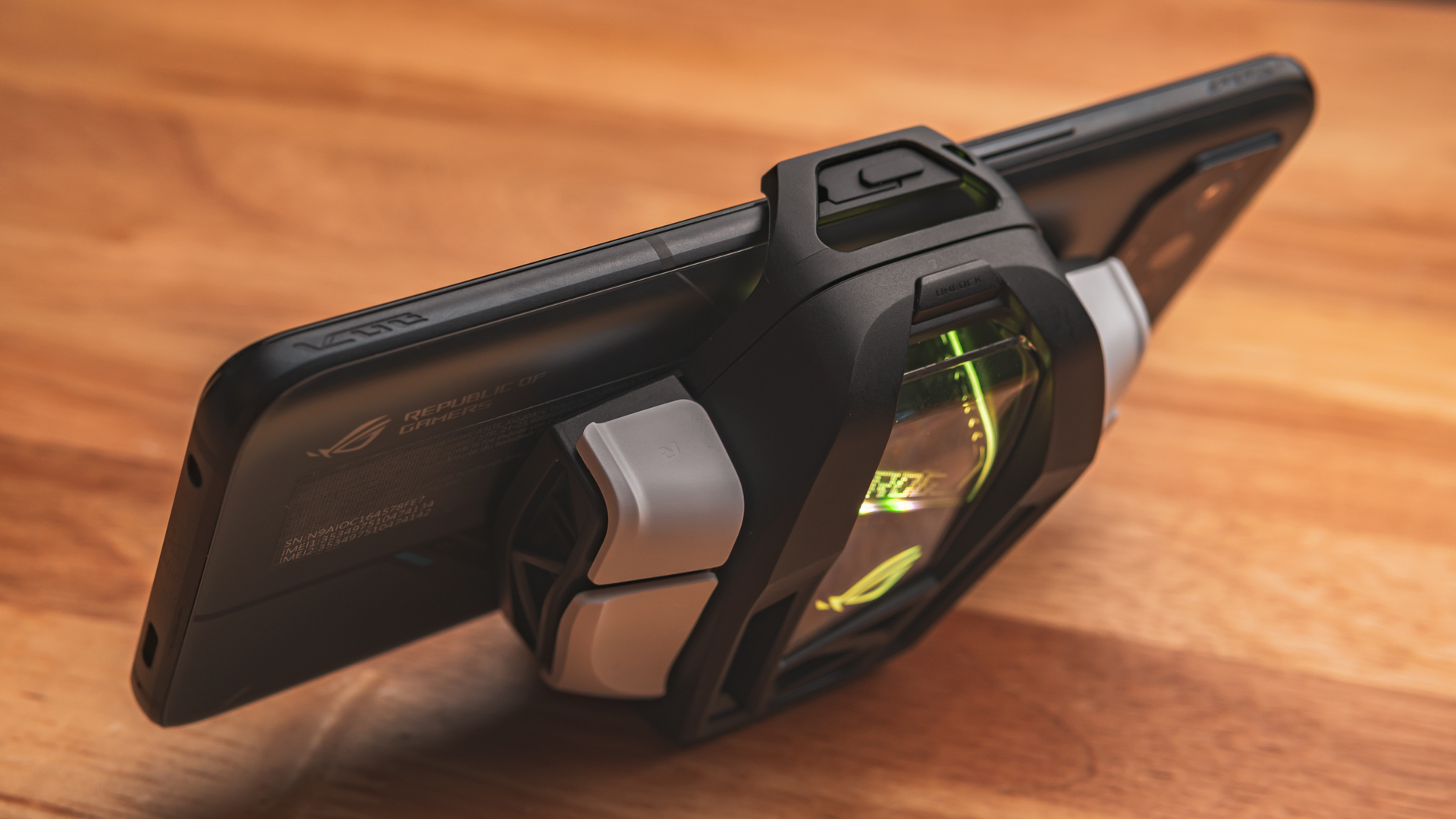
The games we have covered are Asphalt Legends 9, Assoluto Racing, Call of Duty Mobile, Diablo Immortal, Brawl Stars and Genshin Impact.
For those of you who just want the numbers please refer to the image below.
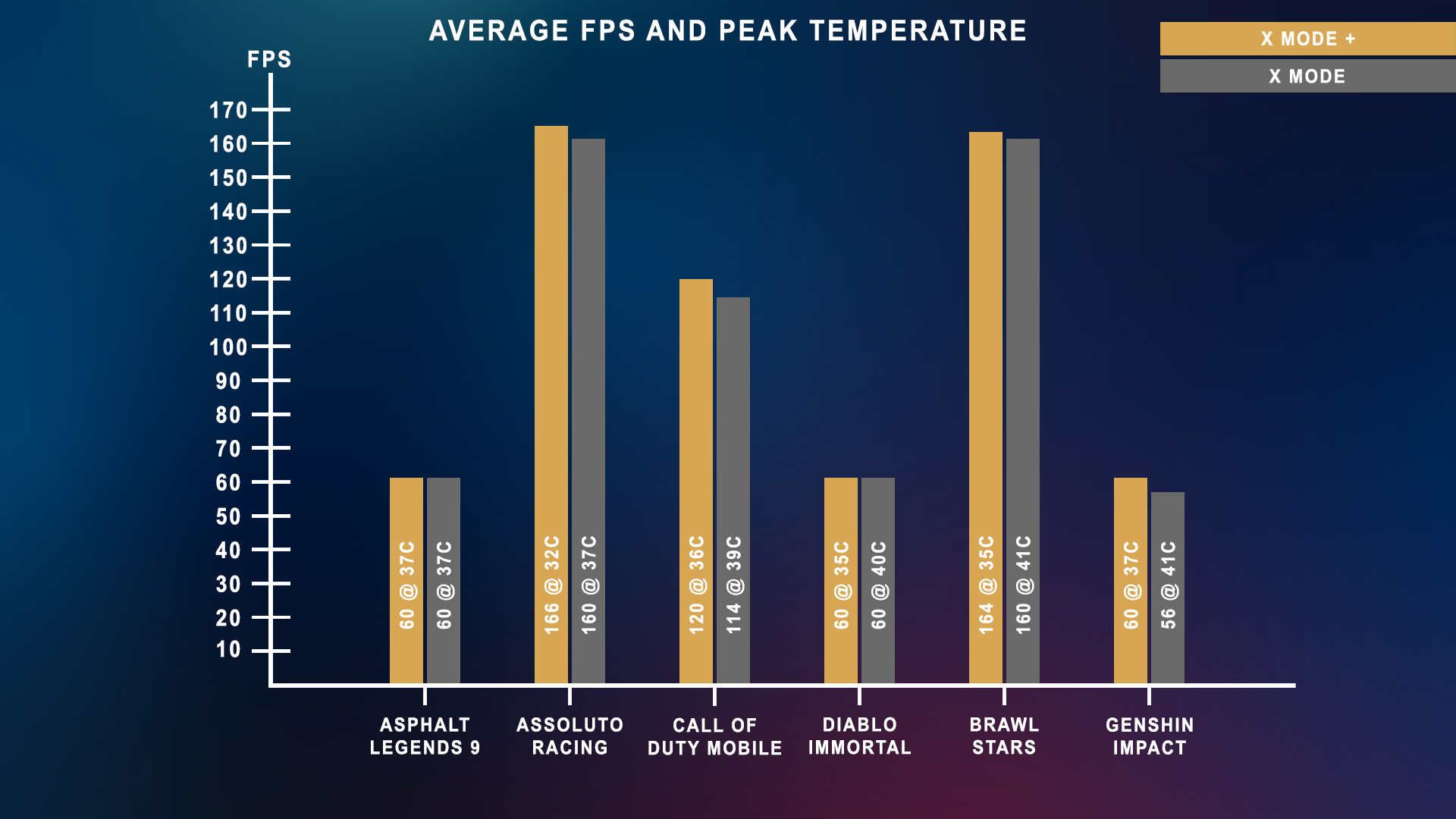
As for synthetic benchmarks, I ran 3D Mark’s Wild Life, Wild Life Extreme and Wild Life Stress test.

With a score of 2663 on wild life extreme, the ROG Phone 6D is positioned just right above the Lenovo Legion Y90. This position can be related to the availability of newer phones in the market such as the Iphone 14 and etc. Do not be fooled by the position as when you put it on a mark of performance per value this device stands out far beyond many.
To compare how this device performs against it’s sibling the ROG Phone 6 which runs on the latest Snapdragon chipset, kindly click this link of our previous review.
What I Liked About The ASUS ROG Phone 6D
- Easy to use UI
- Jawdropping Audio Quality
- 3.5mm Audio Jack
- Remarkable temperature control
- Amazing battery life
- Flagship specs at a very affordable pricing
- It works like a power bank
- Pro Mode Camera
What Can Be Better
- Overly sensitive power button
- Non Scratch Proof Back
- Mediocre camera firmware on a great sensor
- No wireless charging
- No Pre Applied Screen Protector
- Flimsy Phone Cover which feels cheap
Verdict
The ASUS ROG Phone 6D is what a gaming phone or even a mass market consumer oriented phone should be. Flagship details at a very affordable price tag of RM3499. The standout features are definitely the audio and gaming performance of the device. The only issue one would face if this were to be your daily driver would be the size. The huge size of the device severely prevents single handed operation but that doesn’t mean the phone is not capable of delivering a wholesome experience for your average daily use of Facebook, Instagram, Whatsapp and calling.
If you are torn between your options for a gaming phone, the ASUS ROG Phone 6D is one that I will highly recommend.
Product Link : https://rog.asus.com/phones/rog-phone-6d-model/spec/
